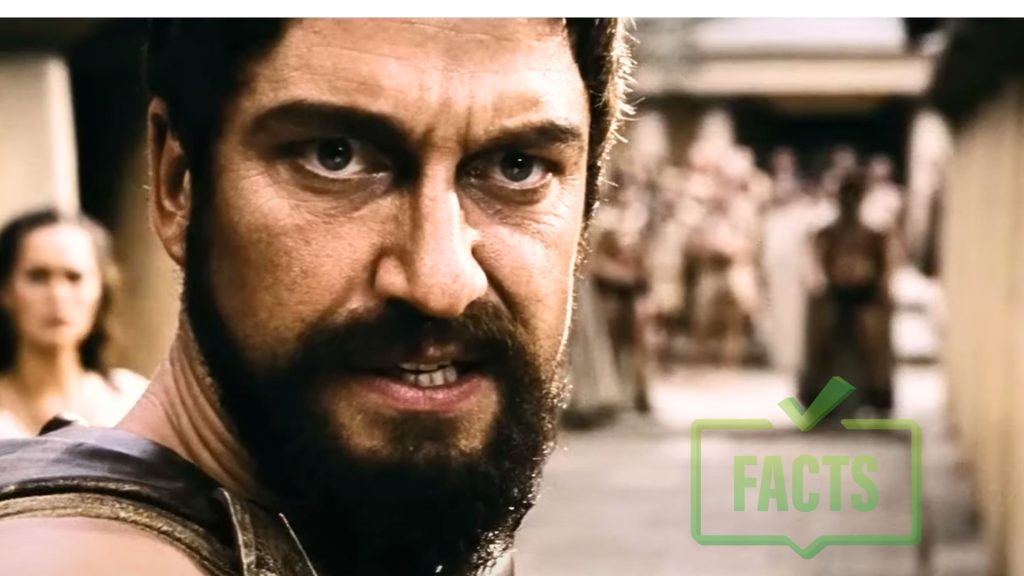
Did the 300 Spartans Win in Real Life?
Contrary to popular belief fueled by dramatized accounts like the 2006 film “300,” the Spartan-led forces did not win the Battle of Thermopylae. King Leonidas I of Sparta and his 300 elite warriors, along with several thousand Greek allies, faced an overwhelming Persian army led by King Xerxes in 480 BCE.
Despite their valiant efforts and tactical expertise, the Greeks were ultimately overrun after being betrayed by a local named Ephialtes, who revealed a secret path to the Persians.
Was the Battle of the 300 Spartans Real?
Yes, the Battle of Thermopylae was very much a real historical event. It occurred during the second Persian invasion of Greece and is well-documented by ancient historians like Herodotus.
Although the Spartans and their allies were defeated, their sacrifice provided crucial time for the rest of Greece to organize a more robust defense, which eventually led to Greek victories at Salamis and Plataea.
Is Leonidas Based on a True Story?
King Leonidas, the quintessential Spartan hero, was indeed a real historical figure. He is best remembered for his leadership during the Battle of Thermopylae, where he epitomized the Spartan values of courage, duty, and sacrifice. His decision to stand and fight to the death has been a source of inspiration and admiration throughout history.
Why is the 300 Spartans So Famous?
The fame of the 300 Spartans can be attributed to their extraordinary bravery and the dramatic nature of their last stand.
Despite facing impossible odds, they chose to fight to protect their homeland, embodying the ultimate sacrifice for one’s country. Their story resonates deeply with themes of valor, freedom, and resistance against tyranny, themes that are universal and timeless.
Did Any of the 300 Spartans Survive?
Historical records suggest that two Spartans survived the battle, having been sent away by Leonidas himself because of eye infections. These survivors, Eurytus and Aristodemus, faced scorn upon their return to Sparta for not perishing with their comrades.
Aristodemus later redeemed his honor at the Battle of Plataea in 479 BCE, where he fought valiantly and died in combat.
What is ‘300 Spartans’ About?
The story of the 300 Spartans is about much more than a military engagement. It is a narrative that explores the concepts of heroism, sacrifice, and the impact of a small group’s actions on the course of history.
The Spartans’ stand at Thermopylae became a symbol of courage and determination that continues to inspire discussions about military strategy and human values. Find the facts about movie “300 Spartans” in reading for you short time.
| Battle of Thermopylae | Partially Accurate | The battle is a real historical event where King Leonidas led 300 Spartans against a massive Persian army. However, the movie exaggerates the scale of both the Spartan and Persian forces. |
| Spartan Warriors | Inaccurate | The film portrays Spartans as superhuman fighters with little armor, which is historically inaccurate. Spartans wore armor and were not the oiled, nearly-nude warriors shown in the movie. |
| King Xerxes | Inaccurate | Xerxes is not the god-like, towering figure as depicted in the movie. Historical accounts describe him more realistically without mystical attributes. |
| Ephialtes | Inaccurate | In the film, Ephialtes is depicted as a disfigured Spartan outcast who betrays his people. Historically, he was a local Greek, not a Spartan, and his portrayal as deformed is fictional. |
| Visuals and Themes | Highly Stylized | The film’s visual style and thematic elements are heavily influenced by Frank Miller’s graphic novel, focusing on dramatic and fantastical elements rather than historical accuracy. |
| Spartan Society | Somewhat Accurate | The movie touches on some aspects of Spartan society, such as the brutal training and eugenics practices, but these are also dramatized. |
Is ‘300 Rise of an Empire’ Based on a True Story?
“300: Rise of an Empire” is a sequel to the 2006 film “300” and features events before, during, and after the Battle of Thermopylae. Like its predecessor, it is loosely based on historical events, specifically the Battle of Artemisium and the Battle of Salamis. It dramatizes these events, focusing on the Athenian leader Themistocles and his efforts to unite all of Greece against the Persian threat.
Exploring the Impact and Legacy of the Battle of Thermopylae
The Battle of Thermopylae, despite being a defeat for the Greeks, played a crucial role in their ultimate victory during the Persian Wars. It galvanized Greek cities to unite against a common enemy, setting the stage for future triumphs that preserved Greek independence and culture. The story of the 300 Spartans, particularly their extraordinary commitment to their cause, continues to be a powerful narrative in discussions about leadership, strategy, and the human spirit.
While the cinematic portrayals of the Battle of Thermopylae, such as Zack Snyder’s “300,” take significant artistic liberties, the core story of the 300 Spartans is based on true events. Their legacy is not just in the details of the battle but in the timeless ideals of bravery, sacrifice, and the fight for freedom. As we reflect on their story, it serves as a potent reminder of the impact that determined individuals can have on the course of history. For more insights and historical analyses, visit Is True Story.
By examining the blend of fact and fiction surrounding the 300 Spartans, we gain not only a deeper understanding of their world but also of the values that continue to influence ours today.

I am Jeremy Jahns – Your Cinematic Explorer
Immerse in movie reviews, Hollywood insights, and behind-the-scenes stories.